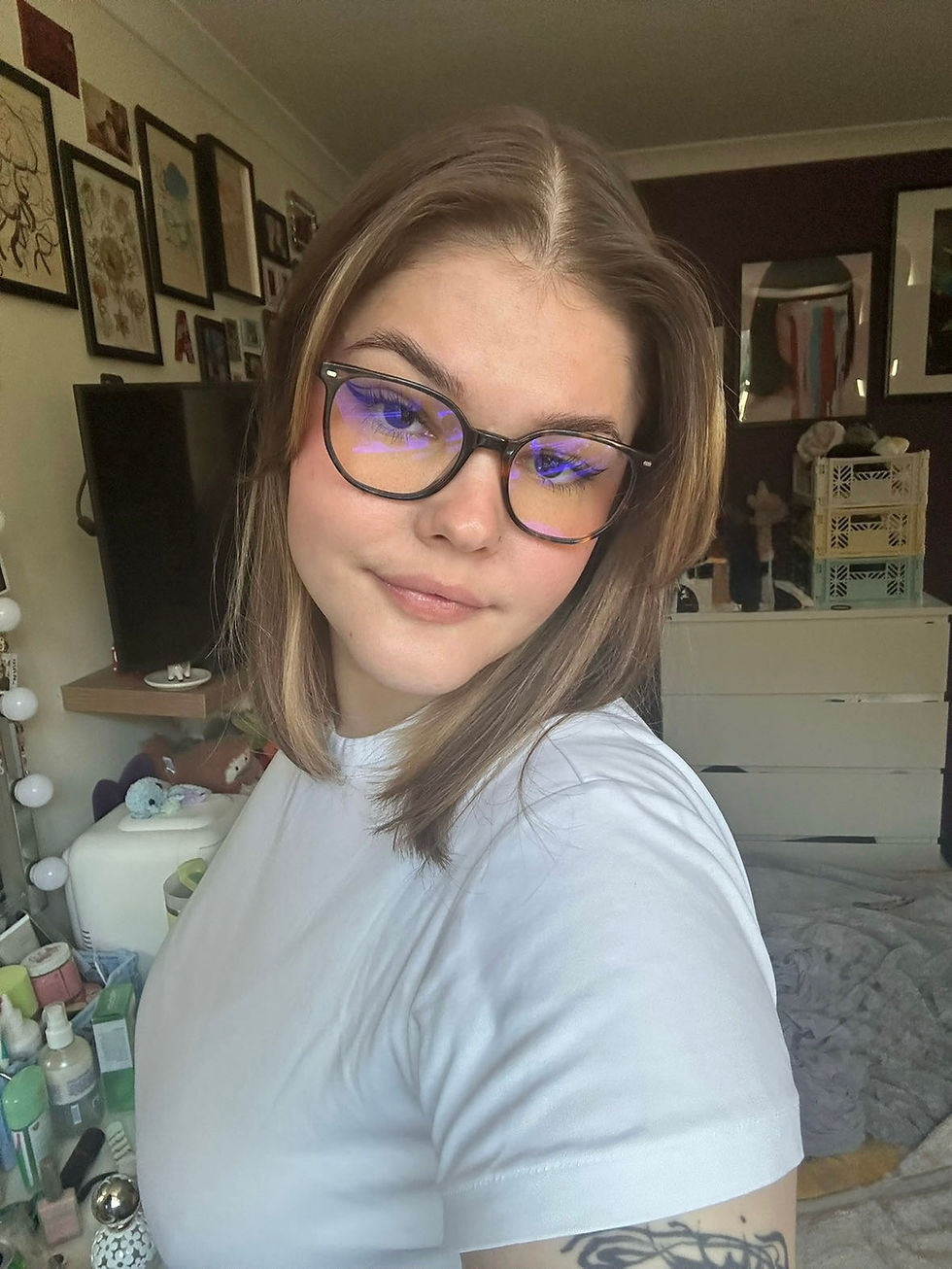Neurodiversity Celebration Week - Alix Brown
- Alix Brown
- Mar 17, 2025
- 4 min read

Neurodiversity is something that we’re becoming more aware of as a society because according to the NHS, one in seven people are neurodiverse, and this figure is likely to be higher thanks to late diagnosis. As part of Neurodiversity Celebration Week, I was asked to answer four questions related to my experiences with neurodiversity, studying with OCA and creativity. Here are my responses -
What does neurodiversity and creativity look like to you?
For me, neurodiversity and creativity go hand in hand: My flavour of neurodiversity involves unusually sensitive senses, which in turn influences how I experience the world. This difference is part of my creativity because it affects how I lay things out, what colours I use and how I do things. For example, busy layouts are harder for me to read, so I specialise in clearer, easier to read layouts. This has become part of my unique selling point because it provides an accessible option for people with dyslexia and works for people who prefer simple layouts.
Being creative also lets me express my passionate interests and share them with others in a visual format. I think that this is best reflected in my “Tales From The Cretaceous” project and my current style: At this stage of my life and study, I am passionate about prehistoric creatures, especially dinosaurs. As a result, I set out to fuse together paleoart and children’s book art because I loved the detail in paleoart and wanted to make it more accessible to a young audience.
What does studying/working with the OCA mean to you?
Studying with OCA means a lot to me because for the first time in my educational career, I’m working alongside people who not only know about neurodiversity, but don’t see it as the be-all and end-all for me. Being partnered with tutors that know something about autism and can adapt to me has done wonders for my confidence and allowed me to feel safe to share my work.
Doing this has meant that I have been regularly participating in Skills Sharing Sessions, had work published and have even been approached to help set up a support group for students who are writing for children. The best part is that my neurodiversity is invisible in a good way because I am in the majority here. Events like Neurodiversity Celebration Week are the cherry on top because I’m now part of a “proper” group, as well as an online community.
What are some things you wish others understood about your neurodiversity?
Disability is a spectrum like light: there are invisible parts and visible parts. Some people tend to fixate on a set image based on the visible side, which makes it easier for them to discriminate against invisible disabilities. My sort of neurodiversity is an invisible disability, and one that varies based on the weather conditions, the environment, what I’m doing, and the actions of other people. As a result, what I can cope with varies depending on a host of external factors.
Another thing that I wish people understood more about is what having more acute senses is like. Although it gives me an edge in terms of picking up on details, it also means that it takes more energy to deal with everyday life. It also means that I overload more easily and can hear sound-based cat scarers, which sound sharp, and feel sharp too. However, these senses give me a creative advantage as well.
How can the OCA be more neuro-inclusive?
One of the things that really works about OCA is the fact that it caters to a wide range of neurodiverse and neurotypical people. Its current course materials are very easy to read which makes studying a very enjoyable and accessible experience. One of the things that I think would help expand this would be to have a way to switch between the current format, the early 2024 version, and a version based on older OCA course materials. This may not be possible, but if it was, it would allow the user to customise their textbook to suit their needs.
I also think that it would be a good idea to offer more forum threads to go with official video call sessions: The Skills Sharing Sessions are an example of a group made up of a forum thread and a Google Meet call. This approach would be very useful for neurodiverse students who haven’t got the confidence yet to do the video call side because it would give them a place to share their work. It would also be more accessible to people in general because it would accommodate different time zones.
Overall, I think that my experiences with OCA and their casual inclusion have made a massive difference to me because they provide scaffolding that’s accessible to everyone. They also celebrate neurodiversity in all its different forms by working with people like me, publishing their work and above all, see us as people.





Comments